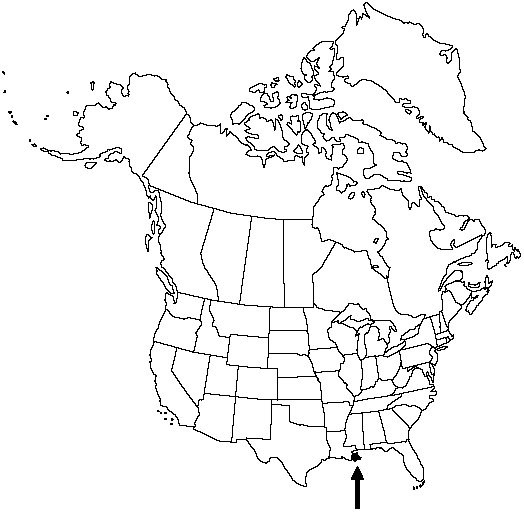Ceratopteris richardii
Dict. Class. Hist. Nat. 3: 351. 1823.
Plants floating or rooted. Sterile leaves lanceolate to deltate to ovate. Petiole of sterile leaf 1–11 cm, not inflated; small leaves lobed to pinnate, segments or pinnae with entire to somewhat incised margins, larger leaves 2-pinnate-pinnatifid with deeply incised pinnae. Blade of sterile leaf 3–16 × 2.5–17 cm, pinnae deltate to ovate; proximal pinnae usually alternate. Fertile leaves lanceolate to deltate to ovate to 19 × 12 cm. Petiole of fertile leaf 6–9 cm. Blade of fertile leaf 2–3-pinnate; terminal segments narrow. Sporangia scattered to densely crowded between midvein and revolute margin, with 20–40 or more indurate annulus cells. Spores 16 per sporangium, 107–150 µm diam. 2n = 78.
Habitat: Aquatic to semiaquatic, lakes and ponds
Elevation: 0 m
Distribution

La., West Indies, Central America in Guatemala, South America, Africa.
Discussion
According to L. G. Hickok (1977), Ceratopteris richardii is diploid. Morphologically, specimens from the United States are difficult to distinguish from tetraploid C. thalictroides. The primary characteristic distinguishing C. richardii is its 16-spored sporangia. Herbarium specimens with 16-spored sporangia from the West Indies and Latin America have variable morphology ranging from that of C. pteridoides to that of C. thalictroides (R. M. Lloyd 1974, fig. 6). Some specimens have both 16- and 32-spored sporangia. This suggests multiple origins for C. richardii. Because reproductive isolation is incomplete among the diploid taxa, and highly fertile F 2 segregates of various morphologic types occur, further work is needed to determine the nature, origin, and distinctness of C. richardii.
Selected References
None.